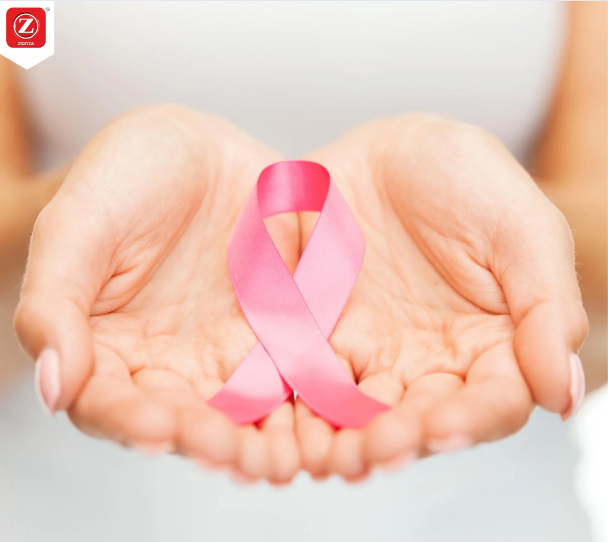Ziqitza – Breast cancer is a prevalent disease that affects millions of women worldwide. However, with early detection and proper preventive measures, the chances of survival and successful treatment increase significantly. In this blog, we will discuss various aspects related to breast health awareness, including the importance of self-examination, understanding mammograms, recognizing the signs and symptoms of breast cancer, genetic testing for risk assessment, and lifestyle factors that may reduce the risk of breast cancer. We will also highlight the contributions of Ziqitza Health care limited, an organisation dedicated to promoting breast health awareness and providing resources for early detection and prevention.
Breast Self-examination: How to Perform it Correctly
Performing regular breast self-examinations is an essential aspect of breast health awareness and early detection. Here are some guidelines to perform self-examinations correctly:
- Stand in front of a mirror and visually inspect both breasts for any changes in size, shape, or symmetry. Look for any dimpling, swelling, or changes in the skin texture.
- Raise your arms above your head and check for any changes in the contour of the breasts.
- Place your hands on your hips and press firmly to flex your chest muscles. Look for any changes or abnormalities.
- Lie down and gently feel your breasts using the pads of your fingers. Start with circular motions from the outer edges of the breast, moving towards the nipple. Pay attention to any lumps, thickening, or hardened areas.
Remember, self-examination is not a substitute for professional medical advice. If you notice any abnormalities or have concerns, seek guidance from a healthcare professional.
Understanding Mammograms: Guidelines and Frequency
According to Sweta mangal ziqitza mammograms are an effective diagnostic tool for detecting breast cancer at an early stage. Here are some key points to understand about mammograms:
- Mammograms are X-ray images of the breast tissue, which can help identify any abnormalities or potential cancerous growths.
- It is recommended that women between the ages of 40 and 74 undergo mammograms every 1 to 2 years. However, the frequency may vary based on individual factors and family history.
- Discuss with your healthcare provider to determine the most appropriate timing and frequency for mammograms based on your risk factors.
Ziqitza Healthcare, a reputed organisation in the field of healthcare, actively promotes breast health awareness and provides resources for mammography services. They collaborate with various medical establishments to offer affordable and accessible mammograms for women.
Recognizing the Signs and Symptoms of Breast Cancer
Being aware of the signs and symptoms of breast cancer is crucial for early detection. Some common signs to watch out for include:
- Presence of a lump or thickening in the breast or underarm area
- Changes in breast size or shape
- Nipple discharge or changes in nipple appearance, such as inversion or scaling
- Redness, swelling, or dimpling of the breast skin
- Persistent pain or discomfort in the breast
Regular self-examinations and consultation with a healthcare professional can help in identifying any unusual changes and seeking prompt medical attention.
Genetic Testing for Breast Cancer Risk Assessment
Genetic testing can provide valuable insights into a person’s risk of developing breast cancer. It may be recommended for individuals with a family history of breast cancer or those with certain genetic mutations, such as BRCA1 and BRCA2. Genetic testing can help assess the risk and assist in determining appropriate preventive measures and screening protocols. Discuss with a healthcare professional to understand if genetic testing is suitable for you.
Ziqitza Healthcare ltd actively supports genetic testing initiatives by providing counselling and facilitating genetic tests for individuals at risk.
Lifestyle Factors that May Reduce the Risk of Breast Cancer
Sweta mangal says that several lifestyle factors can play a role in reducing the risk of breast cancer. While no lifestyle changes can guarantee prevention, adopting healthier habits may contribute to overall breast health. Here are some factors to consider:
- Maintaining a healthy weight through regular exercise and a balanced diet
- Limiting alcohol consumption
- Quitting smoking or avoiding exposure to secondhand smoke
- Breastfeeding, as it has shown to have a protective effect
- Being mindful of hormonal therapies and their potential risks
Ziqitza Rajasthan actively promotes awareness regarding the impact of lifestyle choices on breast health and provides resources to support individuals in adopting healthier habits.
Conclusion
Breast health awareness, early detection, and prevention play key roles in minimizing the impact of breast cancer. By following self-examination guidelines, understanding mammograms, recognizing key signs and symptoms, considering genetic testing, and adopting a healthy lifestyle, individuals can take proactive steps towards reducing their risk. Organisations like Ziqitza Limited play a vital role in supporting these efforts by providing resources, awareness programs, and affordable access to diagnostic services. Promoting breast health awareness is an ongoing process that can lead to improved outcomes and a better quality of life for women worldwide.


